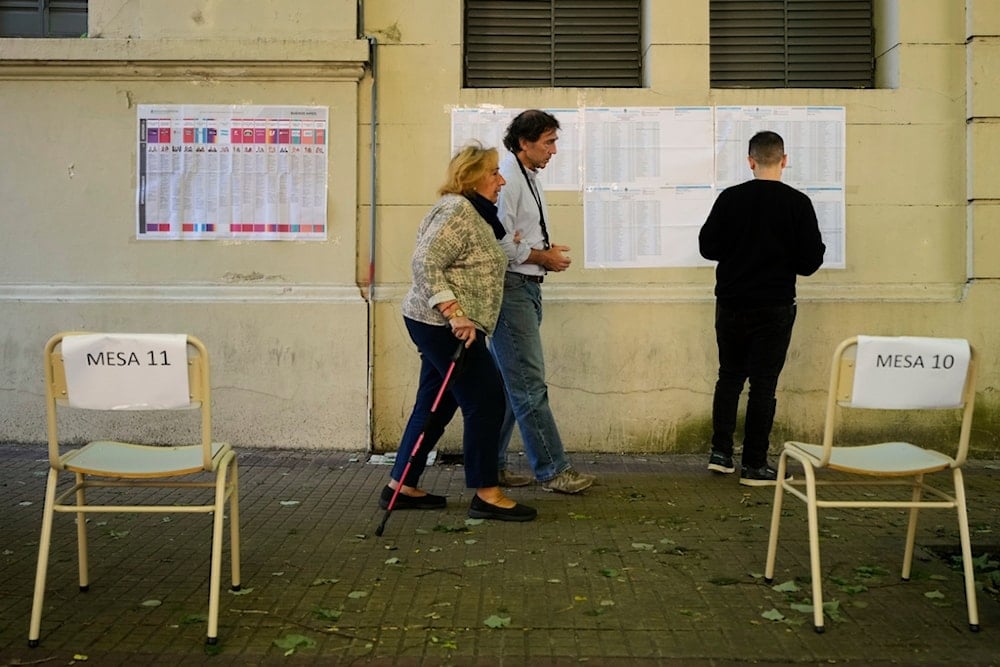Argentina faces pivotal vote on Milei's reform agenda
Argentines voted in high-stakes midterm elections seen as a referendum on President Javier Milei's US-backed austerity reforms.
-

Voters arrive at a polling station during legislative midterm elections, in La Plata, Argentina, Sunday, Oct. 26, 2025. (AP Photo/Gustavo Garello)
Argentines headed to the polls on Sunday for midterm legislative elections that will decide the fate of President Javier Milei's sweeping economic reforms, a vote widely viewed as a referendum on his austerity program and deepening alignment with Washington.
The elections, covering half of the Chamber of Deputies and one-third of the Senate, mark Milei's first national test since taking office two years ago. His government has launched a radical free-market overhaul, cutting tens of thousands of public-sector jobs, slashing subsidies, freezing public works, and reducing welfare transfers in an effort to balance the budget. While inflation has fallen by nearly two-thirds, poverty has soared past 50 percent, and real wages continue to shrink, leaving Argentines sharply divided over his "chainsaw" reforms.
In the days leading up to the vote, Milei's approval rating plunged to 39.9 percent, the lowest since he took office, according to a LatAm Pulse/AtlasIntel poll. Disapproval climbed above 55 percent, reflecting widespread anger over austerity, inflation, and corruption scandals involving figures close to the president, including his sister and chief of staff, Karina Milei, who was accused of accepting bribes, and his Buenos Aires candidate José Luis Espert, who withdrew after alleged links to a US-wanted drug trafficker. Both deny wrongdoing.
The economic fallout has deepened public frustration. Milei's aggressive spending cuts initially triggered a currency run and sharp devaluation, forcing him to seek emergency assistance from US President Donald Trump, who approved a $40 billion aid package. Trump cautioned that he would not "be generous" if Milei suffered losses at the polls, tying Washington's unprecedented support to the Argentine leader's political fortunes.
"You cannot fix a hundred years of decline in 20 months," Milei told critics earlier in the week, defending his reform program. Yet many Argentines say the shock therapy has favored powerful interests while offering "nothing for workers," as one voter in Buenos Aires told AFP.
Markets are bracing for volatility if Milei's Liberty Advances (LLA) party fails to secure enough seats to push through his legislative agenda. Polls indicate the ruling bloc will fall short of a majority, forcing Milei to depend on center-right allies to pass bills amid entrenched opposition from the Peronist movement, which still controls several key provinces.
The outcome will determine whether Argentina stays the course on Milei's US-backed austerity experiment, a policy mix that has impressed investors but devastated households, or whether the country faces a renewed cycle of political paralysis, social unrest, and market turmoil.
Read more: Trump’s $20 bln aid to Argentina sparks backlash among Republicans: FT

 3 Min Read
3 Min Read










